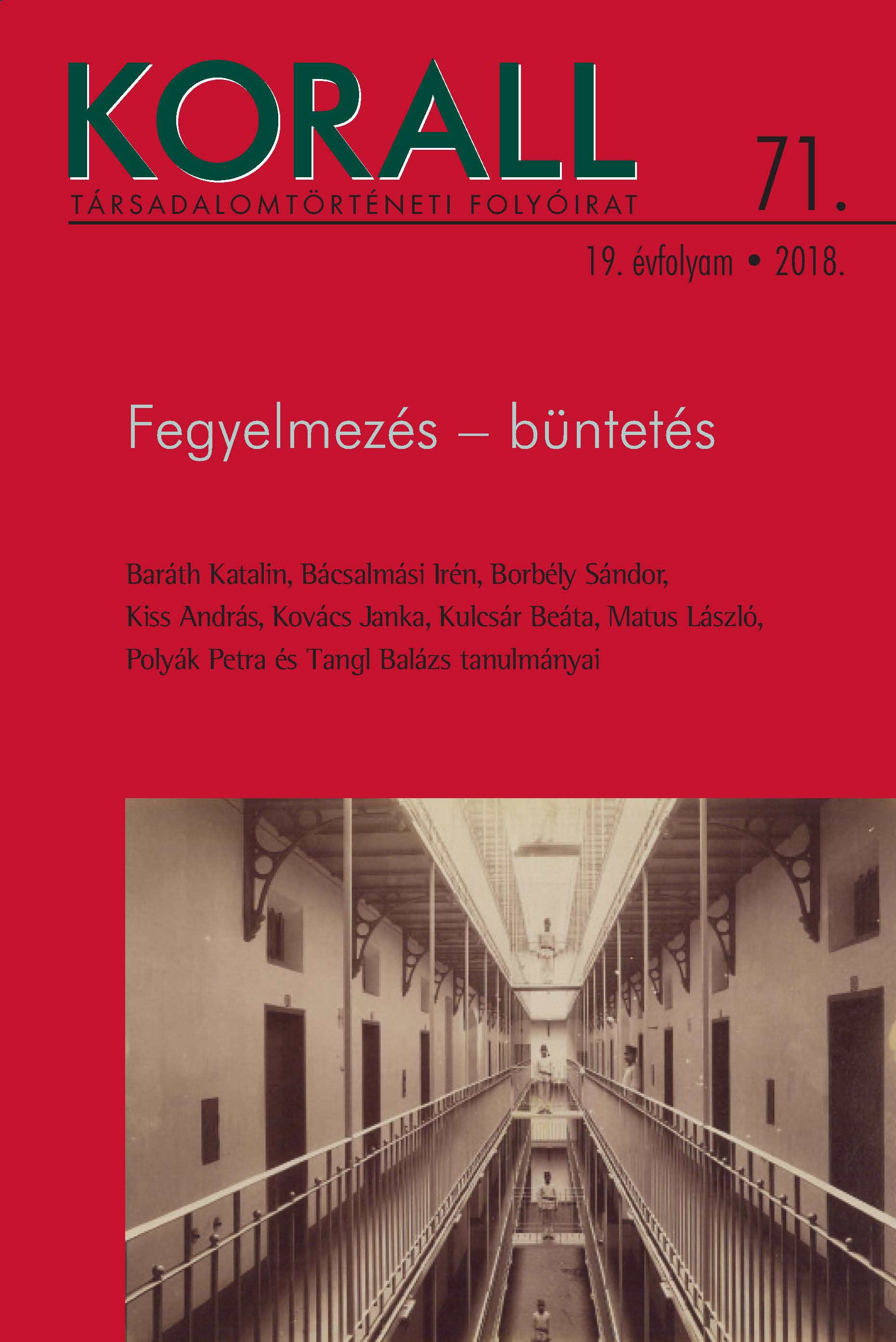A Magyar Királyi Államvasutak „ellenforradalmi” konszolidációja.
The “Counter-Revolutionary” Consolidation of the Hungarian Royal State Railways
Defense Strategies in Political Litigation for Supporting the 1919 Commune at the Hungarian Rail
Author(s): László MatusSubject(s): Political history, Interwar Period (1920 - 1939)
Published by: KORALL Társadalomtörténeti Egyesület
Keywords: hungary;political history;
Summary/Abstract: The documents relating to the disciplinary tribunals and councils of the Hungarian Rail are held at the corporate archives of the Hungarian State Railways. The present study focuses on the politically motivated disciplinary actions at the turn of the 1910s, revealing the identity-building acts of the processes of transition between old and new structures. The paper examines and categorises the defence strategies attested to in the documentation of defence and appeals, primarily the ones with a demonstrated preference of adaptation techniques. Political disciplinary cases are generally characterised by the topoi and slogans of the “counter-revolutionary” ideology appearing in the wording of the indictments, resolutions and protocols, and the fact that all rail employees were represented in them directly or indirectly. Thus, disciplinary actions were the arena for a political cleansing ritual, whereby the railway community excluded the politically deviant members from their fold. As the defence documents examined by the study reveal, the majority of the defendants recognised that the most critical condition for a favourable resolution was ideological adaptation and repressing all components of an alternative identity. As a conclusion, the assumption that the individuals’ strategy of false adaptation ultimately surreptitiously transformed into adherence to the norm evokes the Foucauldian disciplinary machine, which intricately interwove the entire railway community: the counter-revolutionary ideology was internalised by the narratives which were rephrased through the practise of deceit as a strategy, which in turn were primarily deployed because of the regular and continuous disciplinary actions.
Journal: Korall - Társadalomtörténeti folyóirat
- Issue Year: 2018
- Issue No: 71
- Page Range: 87-102
- Page Count: 16
- Language: Hungarian

